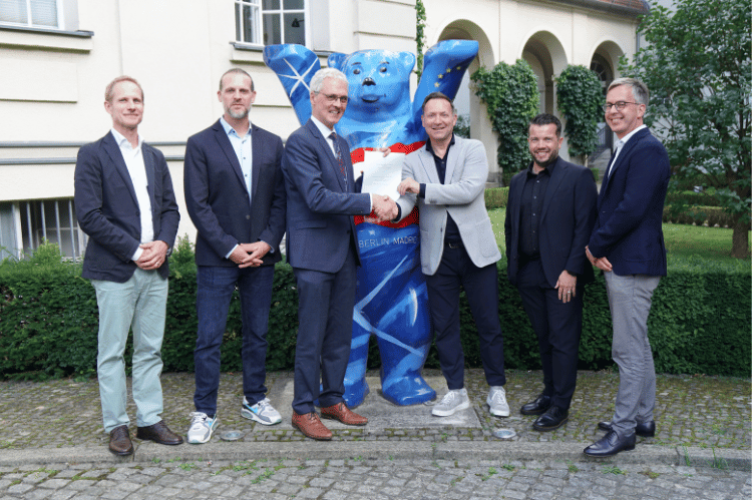Berlin News
ESCP Business School Berlin Partners with Borderstep Institute to Launch "Sustainable Business Models" Research Area
ESCP Business School Berlin is proud to announce the launch of a new research area, "Sustainable Business Models," in collaboration with the Berlin-based Borderstep Institute. Led by Florian Lüdeke-Freund, Chair for Entrepreneurial Sustainability at ESCP Berlin, this initiative aims to transform traditional business practices into sustainable and regenerative models. The two-year cooperation runs from September 2024 to August 2026.
The collaboration seeks to unite diverse stakeholders from business, politics, civil society, and academia to address the great challenge of sustainable transformation in the economy and society. The primary goals are as follows:
- Cooperative Consolidation: Combine the expertise of Borderstep Institute and ESCP to enhance credibility and impact
- Clear Positioning: Establish the research area as a central "Think-and-Do-Tank" for sustainable business models in Germany, attracting projects and contracts
- Network Expansion: Develop and integrate individual and joint networks to effectively implement research and transfer projects
Background and Significance
Borderstep Institute has been at the forefront of research in areas such as the Green Economy, Sustainable Entrepreneurship, and Smart Energy for many years. However, sustainable business models have evolved into a distinct and dynamic field, necessitating a dedicated research area. This strategic move acknowledges the growing importance of sustainable business practices and aims to position the partnership as a leading authority in the field.
Core Themes of the Research Area
Based on prior work and identified gaps, the research area will focus on four core themes:- Patterns of Sustainable Business Models: Developing classifications and theories that serve as a foundation for further research and practical applications in business model development and evaluation.
- Design of Sustainable Business Models: Advancing tools and frameworks such as the Sustainable Business Model Canvas to support innovation and transformation in business practices.
- Evaluation of Business Models: Establishing methods to measure the sustainability impact and "double dividend" of business models, addressing one of the most significant gaps in current research.
- Educational and Transfer Formats: Creating workshops, certification courses, and other formats to disseminate knowledge and foster implementation of sustainable business practices.
Future Prospects
The partnership plans to expand capacities through additional research staff, doctoral candidates, and post-doctoral researchers. There is also potential for establishing a branch of the Borderstep Institute in Hamburg, leveraging the local economic and academic environment.
Campus
